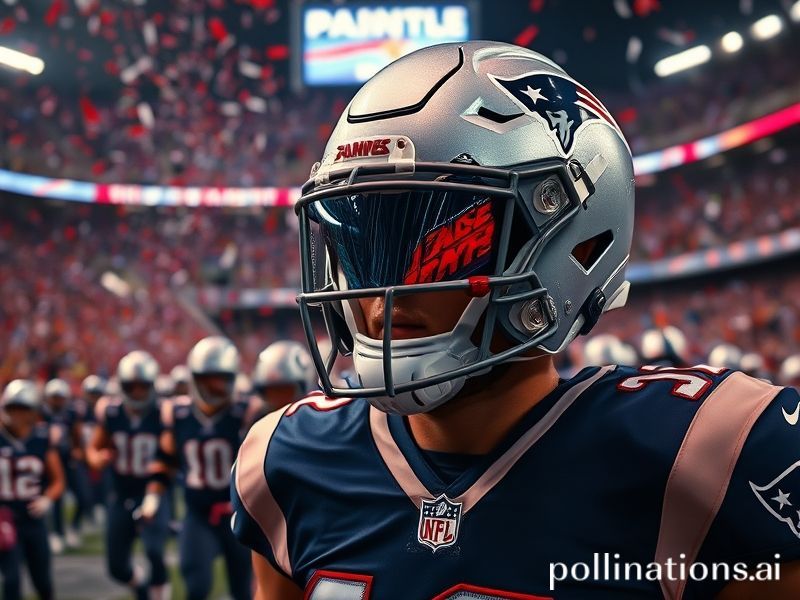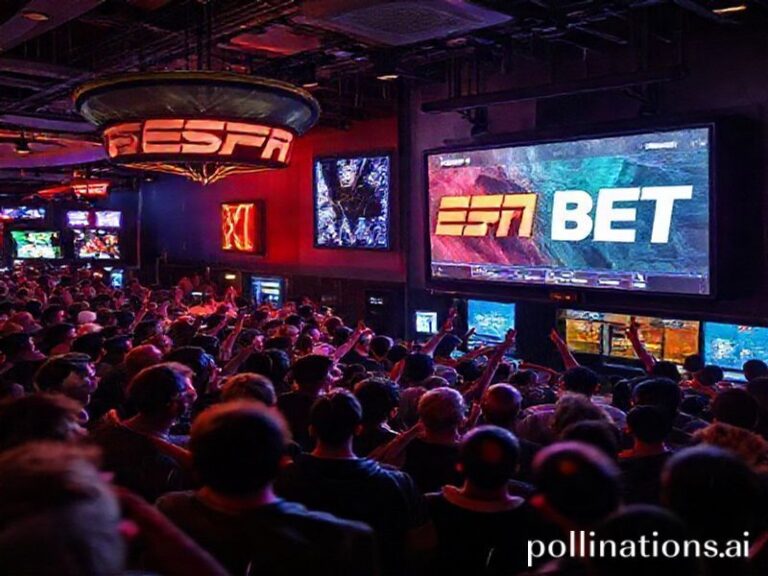Global Supply Chains & Halftime Hooks: How One Patriots Game Quietly Runs the World
In a smallish corner of Foxborough, Massachusetts, 65,000 people are presently losing their minds over a leather prolate spheroid. The rest of the planet, meanwhile, is busy losing its mind over everything else—meteorological tantrums, sovereign-debt cliffhangers, and the latest celebrity-sponsored crypto rug-pull—yet somehow still finds bandwidth to rubberneck at the Patriots game today. Why? Because if the United States is the world’s loudest teenager, the NFL is its favorite TikTok dance: incomprehensible to many, mesmerizing to most, and impossible to scroll past without at least a smirk.
Let us zoom out for a second. Somewhere above the North Atlantic, a Lufthansa cargo jet hums eastward carrying 47 tons of Massachusetts lobsters to Frankfurt’s Christmas markets. The pilot, a Hamburg native who still can’t figure out why Americans call it “football” when the ball so rarely meets foot, is monitoring the game’s live stat-cast on the cockpit iPad. Down below, container ships queue outside Rotterdam because a single crane operator refuses to miss the fourth quarter. Global supply chains, already held together by Excel macros and wishful thinking, now pivot on the hamstrings of a 23-year-old cornerback from LSU.
In Lagos, a sports-bar owner named Nnamdi has painted “Go Pats” on his corrugated-iron roof because Bostonians tip in dollars and nostalgia. He streams the game via a VPN routed through Reykjavik, which occasionally hiccups whenever Iceland remembers it has better things to do. His patrons—mostly Uber drivers cooling their engines—debate whether Bill Belichick’s sleeveless hoodie is a fashion statement or a cry for help. Spoiler: it’s both.
The geopolitical stakes, if you squint, are everywhere. The Patriots’ starting quarterback is Canadian by birth; his backup grew up in Berlin, the child of U.S. servicemen who taught him to throw spirals between NATO briefings. Their favorite target is a London-born wide receiver whose Instagram bio reads “Global Citizen, Local Legend,” and whose jersey outsells tea kettles in Harrods. Every completed pass is thus a miniature NAFTA reunion, minus the trade wars and plus the occasional Gatorade bath.
Meanwhile, Chinese sports-app executives salivate over the real-time data—how long viewers in Ankara stay glued to a third-and-long, how many replays Kazakhs demand of a questionable pass-interference call. These metrics are fed into an algorithm that predicts not merely consumer sentiment but the probability of civil unrest in any city where the home team is down by four with ninety seconds left. Somewhere in Shenzhen, an intern has already drafted a white paper titled “Gridiron Sentiment as Leading Indicator of Municipal Mood Swings.” The Party is intrigued.
Back in the stadium, a flyover by two F-35s costs taxpayers roughly the annual GDP of Tonga. The pilots, veterans of five Middle East rotations, execute their turn precisely as the anthem’s final note quavers—an operatic coincidence that will be cited by defense contractors as proof of concept for next year’s budget request. On the jumbotron, a montage honors veterans, teachers, and that one guy who invented a better coffee lid. The crowd roars approval, blissfully unaware the coffee-lid patent is now owned by a Luxembourg shell corporation.
Halftime arrives with a pop star whose last album was streamed 1.7 billion times but whose name your correspondent still has to Google. She descends from the rafters in a harness that cost more than Finland’s annual arts subsidy, lip-syncing to her own echo while fireworks spell “HOPE” over an end zone. The word dissipates into the Massachusetts night faster than you can say “student-loan interest.”
When the final whistle blows—Patriots win, lose, or invent some new quantum outcome in between—the planet will exhale and return to its scheduled catastrophes. Cargo cranes will resume swinging, VPNs in Lagos will switch to Champions League highlights, and the Icelandic server will redirect to a fish-export spreadsheet. Yet for three commercial-soaked hours, humanity’s disparate anxieties converged on a patch of turf the size of a suburban cul-de-sac. In a fractured world, that might be the most American export of all: the comforting illusion that all problems can be solved in four quarters, given enough nachos.
And tomorrow? There will be another game, another anthem, another algorithm learning that we are all, in the end, suckers for a good narrative arc—even if the ball is the wrong shape and the clock keeps lying.







